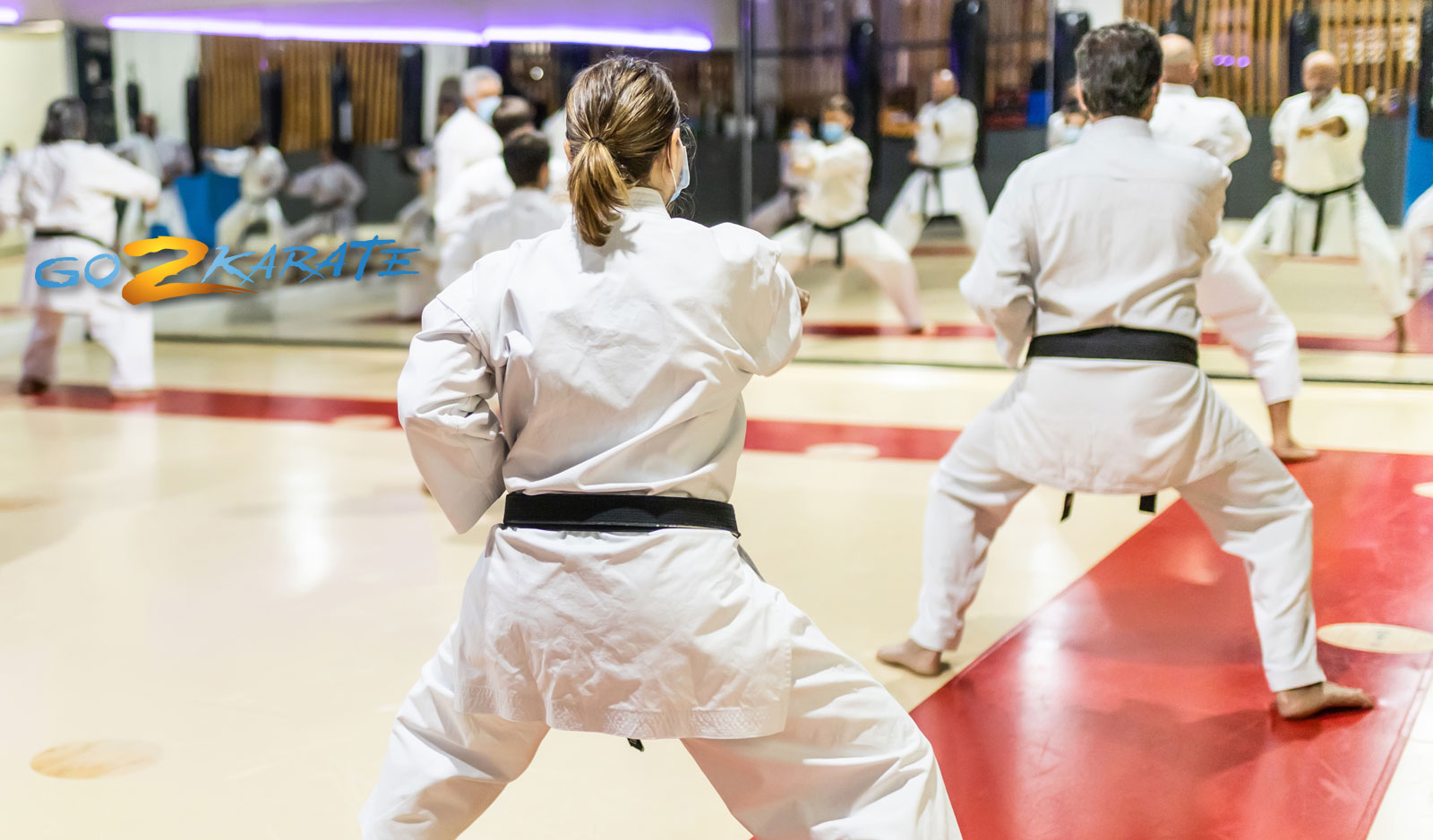How Martial Arts Strengthens the Heart and Improves Cardiovascular Fitness.
Originally Published on Go2Karate.com. Your Source for Martial Arts Expertise
Cardiovascular health is a critical aspect of overall well-being, yet many adults struggle to find effective ways to improve and maintain their heart health. Sedentary lifestyles, poor dietary choices, and high stress levels can all contribute to heart disease and other cardiovascular issues. Martial arts, with its dynamic combination of aerobic and anaerobic exercises, provides a comprehensive approach to strengthening the heart and improving cardiovascular endurance. For adults seeking to enhance their cardiovascular health, martial arts offers a challenging yet enjoyable way to achieve lasting results.
One of the key ways martial arts supports heart health is through its high-intensity aerobic exercises. Movements such as kicks, punches, and sparring drills elevate the heart rate, keeping it in the target zone for extended periods of time. This type of cardiovascular training improves the efficiency of the heart and lungs, allowing them to pump blood and oxygen more effectively throughout the body. Over time, this strengthens the heart muscle, reduces blood pressure, and improves overall circulation, all of which are essential for long-term cardiovascular health.
Unlike traditional cardio exercises such as running or cycling, martial arts offers a more engaging and varied workout. Martial artists are constantly moving, switching between striking, blocking, and dodging, which keeps the heart rate elevated while also challenging different muscle groups. This full-body workout not only improves cardiovascular fitness but also builds strength, flexibility, and endurance. The combination of these physical benefits leads to a stronger, healthier heart and a more efficient cardiovascular system.
Martial arts also incorporates anaerobic exercise, which plays an important role in heart health. Short bursts of high-intensity activity, such as those involved in sparring or practicing complex techniques, challenge the body’s ability to produce energy without relying on oxygen. This type of exercise helps build muscle strength and endurance, both of which contribute to overall cardiovascular fitness. The combination of aerobic and anaerobic exercises in martial arts creates a balanced workout that keeps the heart healthy and strong
In addition to improving heart health, martial arts can help lower cholesterol levels and reduce the risk of cardiovascular disease. Regular physical activity has been shown to raise levels of high-density lipoprotein (HDL), also known as “good” cholesterol, while lowering levels of low-density lipoprotein (LDL), or “bad” cholesterol. By promoting healthy blood circulation and reducing the buildup of fatty deposits in the arteries, martial arts helps protect against heart attacks, strokes, and other cardiovascular conditions.
Another way martial arts benefits cardiovascular health is by aiding in weight management. Excess weight puts additional strain on the heart, making it work harder to pump blood throughout the body. By engaging in regular martial arts training, adults can burn calories, build lean muscle, and achieve a healthy weight, all of which contribute to better heart health. Weight loss and weight management are critical components of preventing heart disease, and martial arts provides an effective and sustainable way to maintain a healthy body weight.
Beyond the physical benefits, martial arts also contributes to heart health by reducing stress. Chronic stress is a known risk factor for heart disease, as it can lead to increased blood pressure, inflammation, and other cardiovascular problems. Martial arts offers a powerful stress-relief mechanism, helping practitioners release tension and anxiety through physical activity. The mindfulness and focus required during martial arts training also promote relaxation and mental clarity, both of which help reduce stress levels. By managing stress more effectively, martial artists can protect their heart health and improve their overall quality of life.
For those concerned about long-term cardiovascular health, martial arts offers a sustainable approach to staying active and protecting the heart. Unlike some forms of exercise that may become monotonous or difficult to maintain over time, martial arts keeps practitioners engaged and motivated through its dynamic and challenging nature. The excitement of learning new techniques and the sense of accomplishment that comes from progressing through the ranks make martial arts a lifelong pursuit that promotes both physical and mental health.
Moreover, the social aspect of martial arts can enhance cardiovascular health. Training in a supportive environment with fellow practitioners creates a sense of camaraderie and accountability, encouraging individuals to stay consistent with their training. This sense of community can reduce feelings of isolation and loneliness, which have been linked to poor heart health. The encouragement and support from instructors and training partners help adults stay motivated to continue their martial arts journey and maintain their cardiovascular fitness.
Key takeaway: Cardiovascular health is essential for longevity and overall well-being. Martial arts offers a dynamic, engaging way to strengthen the heart, improve circulation, and reduce the risk of cardiovascular disease, all while fostering mental clarity and reducing stress.

Source: The Go2 Karate Library – Where Martial Arts Enthusiasts and Professionals Find Expert Guidance.
